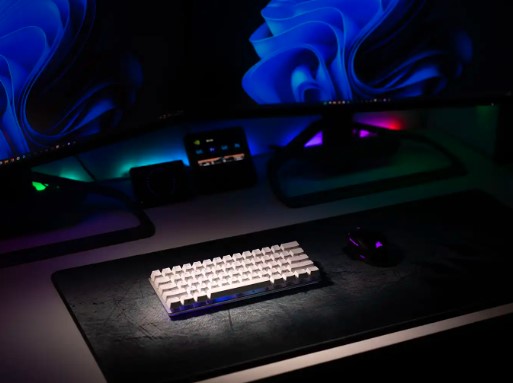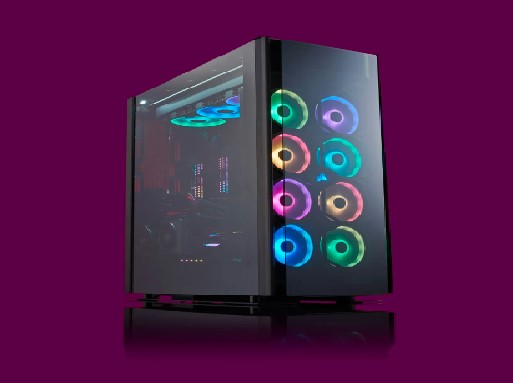Homemade computer gaming, often known as DIY gaming, is a popular hobby among enthusiasts who relish building and customizing their gaming setups. From designing custom gaming rigs to modding peripherals and creating personalized gaming experiences, DIY gaming offers endless possibilities for creativity and innovation. In this comprehensive guide, we’ll delve into the world of homemade computer gaming, exploring the benefits, challenges, and essential components needed to build your gaming paradise.

Understanding Homemade Computer Gaming
Homemade computer gaming involves constructing and customizing gaming setups using off-the-shelf components, custom-built hardware, and software modifications. DIY gamers take pride in designing unique and high-performance systems tailored to their gaming preferences and requirements. Whether you’re a casual gamer seeking a budget-friendly setup or a hardcore enthusiast aiming for ultimate performance, homemade computer gaming offers flexibility, customization, and endless opportunities for experimentation.
Benefits of DIY Gaming
1. Customization
One of the primary benefits of homemade computer gaming is the ability to customize every aspect of your gaming setup. From selecting individual components such as processors, graphics cards, and cooling systems to designing custom case mods and RGB lighting schemes, DIY gamers have full control over the aesthetics and functionality of their gaming rigs.
2. Performance
By carefully selecting high-quality components and optimizing system configurations, DIY gamers can achieve superior performance compared to off-the-shelf gaming systems. Overclocking, custom cooling solutions, and hardware modifications allow enthusiasts to push their systems to the limit and achieve impressive frame rates and responsiveness in their favorite games.
3. Cost Savings
While building a high-end gaming rig from scratch can be expensive, DIY gaming can also be a cost-effective option for budget-conscious gamers. By selecting components based on performance and value, DIY gamers can build gaming setups that offer excellent price-to-performance ratios compared to pre-built systems.
4. Learning and Skill Development
Homemade computer gaming is not just about playing games; it’s also about learning and skill development. DIY gamers gain valuable knowledge and experience in computer hardware, software, and troubleshooting through hands-on experimentation and problem-solving. Building and maintaining a gaming rig can be an educational and rewarding experience for enthusiasts of all skill levels.
Essential Components for DIY Gaming
1. Gaming PC Components
- Processor (CPU): The central processing unit (CPU) is the brain of your gaming PC, responsible for executing instructions and calculations.
- Graphics Card (GPU): The graphics card, or GPU, is essential for rendering high-quality graphics and delivering smooth gaming performance.
- Memory (RAM): Random access memory (RAM) provides temporary storage for data and instructions, allowing for fast access and multitasking.
- Storage: Solid-state drives (SSDs) and hard disk drives (HDDs) store game files, operating systems, and other data on your gaming PC.
- Motherboard: The motherboard serves as the foundation for your gaming PC, providing connectivity and compatibility for all components.
2. Peripherals and Accessories
- Monitor: A high-quality gaming monitor with fast response times and high refresh rates enhances the gaming experience.
- Keyboard and Mouse: Gaming keyboards and mice with customizable buttons and ergonomic designs improve control and responsiveness.
- Headset or Speakers: Immersive audio is essential for an engaging gaming experience, whether through headphones or speakers.
- Gaming Chair: A comfortable and ergonomic gaming chair reduces fatigue during long gaming sessions.
3. Cooling Solutions
- CPU Cooler: An efficient CPU cooler prevents overheating and maintains optimal performance during intense gaming sessions.
- Case Fans: Additional case fans improve airflow and help dissipate heat from the gaming PC’s components.
- Liquid Cooling: Advanced liquid cooling solutions provide superior thermal performance and aesthetics for overclocked gaming rigs.
Challenges and Considerations
While homemade computer gaming offers many benefits, it also comes with its challenges and considerations.
1. Compatibility
Ensuring compatibility between components is essential when building a gaming PC from scratch. DIY gamers must carefully research and select components that are compatible with each other and with their desired gaming setup.
2. Technical Knowledge
Building and maintaining a gaming PC requires a certain level of technical knowledge and skill. DIY gamers should be prepared to troubleshoot hardware issues, update drivers, and optimize system configurations to ensure optimal performance and stability.
3. Time and Effort
Building a gaming PC from scratch can be time-consuming and labor-intensive. DIY gamers should be prepared to invest time and effort into researching components, assembling hardware, and troubleshooting issues to create a successful gaming setup.
Conclusion
Homemade computer gaming offers enthusiasts the opportunity to build and customize their gaming setups tailored to their specific preferences and requirements. From selecting high-performance components to designing custom case mods and cooling solutions, DIY gaming allows gamers to express their creativity and push the boundaries of gaming technology. By understanding the benefits, challenges, and essential components of DIY gaming, enthusiasts can embark on a rewarding journey of building and customizing their gaming paradise.
